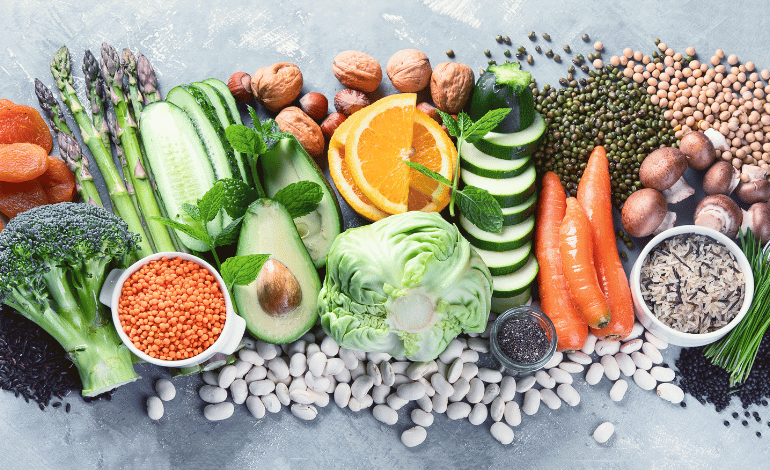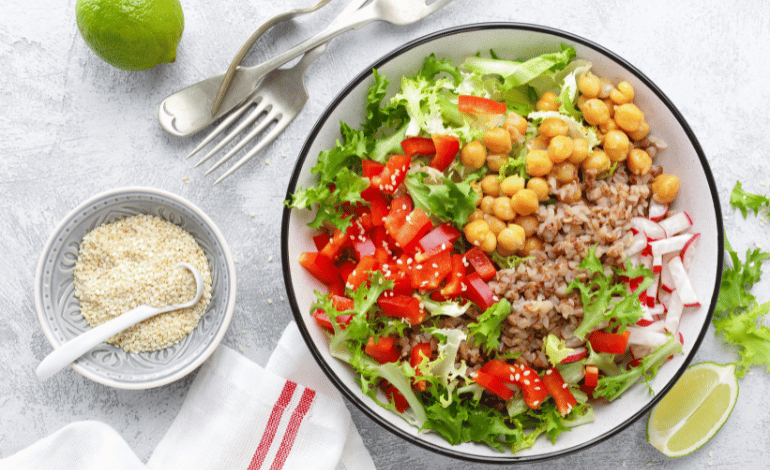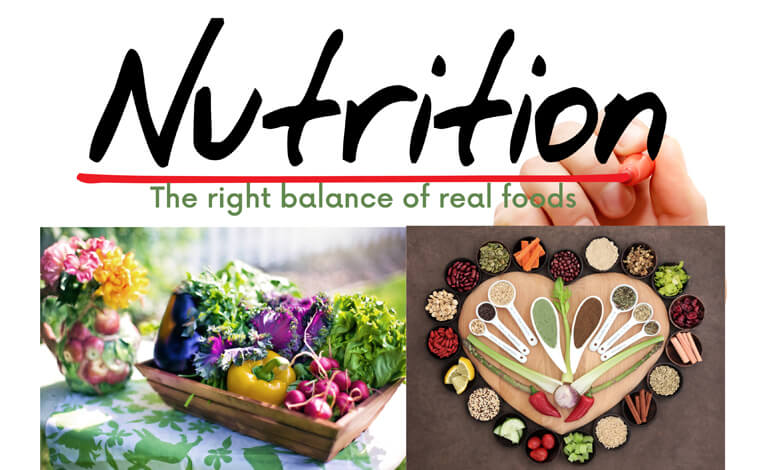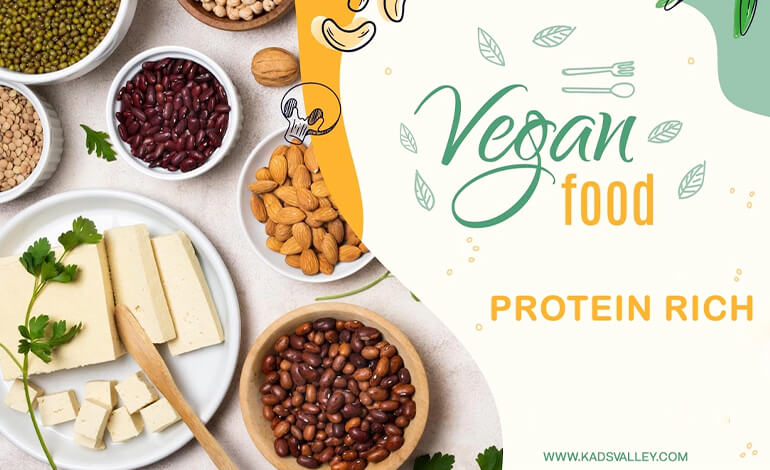Plant-Based Protein: A Nutritious and Sustainable Choice

Introduction
In a world where more people are embracing healthy lifestyles and sustainable food choices, plant-based protein has gained significant popularity. Whether you’re a fitness enthusiast, a health-conscious individual, or someone looking to reduce their carbon footprint, incorporating plant-based protein into your diet offers numerous benefits. This article explores the concept of plant-based protein, its advantages, various sources, nutritional profile, and ways to incorporate it into your daily meals.
What is Plant-Based Protein?
Plant-based protein refers to protein derived from plant sources such as legumes, grains, nuts, seeds, and certain vegetables. Unlike animal-based protein, which comes from sources like meat, dairy, and eggs, plant-based protein offers a viable alternative for individuals following a vegetarian, vegan, or flexitarian diet.
Benefits of Plant-Based Protein
Plant-based protein comes with a host of benefits for your health, the environment, and even animal welfare. Firstly, plant-based protein sources are typically lower in saturated fat and cholesterol, making them heart-healthy choices. They are also rich in fiber, vitamins, minerals, and phytonutrients, which contribute to overall well-being and disease prevention.
Furthermore, plant-based protein is more sustainable and environmentally friendly compared to animal-based protein production. Livestock farming is a significant contributor to greenhouse gas emissions and deforestation, while plant-based protein production has a smaller carbon footprint and requires fewer natural resources.
Popular Plant-Based Protein Sources
There is a wide array of delicious plant-based protein sources to choose from. Legumes such as lentils, chickpeas, and black beans are excellent sources of protein and can be used in soups, salads, and stews. Grains like quinoa, brown rice, and oats also offer substantial protein content and can be used as a base for nourishing meals. Nuts and seeds, including almonds, chia seeds, and hemp seeds, provide protein, healthy fats, and essential minerals.
Additionally, tofu, tempeh, and seitan are popular plant-based protein options for those looking to replace meat in their dishes. These soy-based products are versatile and can be used in stir-fries, sandwiches, and even as meat substitutes in burgers and sausages.
10 Protein-Rich Vegetarian Recipes
Nutrition 101: The Basics Of Eating For A Healthy Life
Nutritional Profile of Plant-Based Protein
Plant-based protein sources offer a well-rounded nutritional profile. While animal-based protein sources typically provide all essential amino acids, some plant-based sources may lack specific amino acids. However, by combining different plant-based protein sources throughout the day, you can easily obtain all essential amino acids and meet your protein needs. This is known as protein complementation and can be achieved by combining legumes with grains or nuts and seeds.
Moreover, plant-based protein sources are often rich in fiber, antioxidants, and phytochemicals, which contribute to better digestion, improved immunity, and reduced inflammation.
Plant-Based Protein for Athletes
Contrary to the myth that athletes can only achieve optimal performance with animal-based protein, many athletes are successfully fueling their bodies with plant-based protein. Plant-based protein sources can provide adequate protein for muscle recovery, repair and growth. They also offer the added benefits of anti-inflammatory properties, improved digestion, and faster nutrient absorption.
Renowned athletes across various sports have adopted plant-based diets, demonstrating that it is possible to excel in athletic performance while following a sustainable and cruelty-free approach.
Plant-Based Protein and Weight Loss
If weight loss is your goal, incorporating plant-based protein into your diet can be highly beneficial. Plant-based protein sources are generally lower in calories and saturated fat compared to their animal-based counterparts. They also provide fiber, which aids in satiety and helps control appetite.
Including plant-based protein in your meals can contribute to a balanced diet that promotes weight loss while providing essential nutrients. However, it’s important to remember that weight loss is a multifaceted process that involves a combination of healthy eating, regular physical activity, and lifestyle changes.
21 Successful Tips To Lose Weight
Protein Power: Boost Your Metabolism And Lose Weight With These Tips
Incorporating Plant-Based Protein into Your Diet
Incorporating plant-based protein into your diet is easier than ever, thanks to the increasing availability of plant-based products and recipes. Start by gradually replacing animal-based proteins with plant-based alternatives in your favorite dishes. For instance, swap ground beef for lentils in tacos or blend tofu into a creamy pasta sauce.
Experiment with new recipes that feature plant-based protein sources as the star ingredient. Get creative with plant-based burgers, protein-packed smoothies, or savory plant-based bowls. By exploring diverse flavors and cuisines, you’ll discover a world of exciting possibilities with plant-based protein.

Plant-Based Protein Supplements
While whole food sources should be the foundation of your plant-based protein intake, there are instances where protein supplements can be beneficial. Plant-based protein powders, such as pea, rice, or hemp protein, offer convenience and versatility, making them a popular choice for athletes, busy individuals, or those with higher protein requirements.
When choosing a plant-based protein supplement, look for high-quality products that are free from artificial additives and sweeteners. Be sure to consult with a healthcare professional or a registered dietitian before incorporating supplements into your routine.
Cooking with Plant-Based Protein
Cooking with plant-based protein can be an enjoyable and rewarding experience. As mentioned earlier, tofu, tempeh, and seitan are excellent options for replacing meat in various dishes. You can marinate tofu and grill it to perfection, crumble tempeh into chili or stir-fries, or make flavorful seitan-based roasts.
Experimenting with different herbs, spices, and cooking techniques will enhance the taste and texture of your plant-based protein creations. Don’t be afraid to explore new recipes and adapt them to suit your preferences. The possibilities are endless!
Plant-Based Protein and the Environment
One of the significant advantages of plant-based protein is its positive impact on the environment. Animal agriculture is a resource-intensive industry that contributes to deforestation, water pollution, and greenhouse gas emissions. By choosing plant-based protein sources, you actively reduce your ecological footprint and support a more sustainable food system.
Additionally, opting for plant-based protein can help conserve water, preserve biodiversity, and mitigate climate change. Small changes in our dietary choices can collectively make a significant difference in protecting our planet for future generations.
Addressing Common Misconceptions
Despite the numerous benefits, there are some common misconceptions surrounding plant-based protein. One misconception is that plant-based protein lacks sufficient amino acids. As mentioned earlier, by consuming a variety of plant-based protein sources, you can easily obtain all essential amino acids and meet your nutritional needs.
Another misconception is that plant-based protein is tasteless or boring. On the contrary, plant-based protein sources can be incredibly flavorful and versatile when prepared with creativity and culinary techniques. The abundance of spices, herbs, and plant-based recipes ensures that your taste buds will never be disappointed.
Tips for a Balanced Plant-Based Diet
To ensure a balanced and nourishing plant-based diet, consider the following tips:
- Include a variety of plant-based protein sources throughout the day to obtain all essential amino acids.
- Emphasize whole, unprocessed foods such as legumes, grains, fruits, vegetables, nuts, and seeds.
- Incorporate a wide range of colorful fruits and vegetables to maximize nutrient intake.
- Don’t forget healthy fats from sources like avocados, olives, nuts, and seeds.
- Pay attention to micronutrients like iron, calcium, and vitamin B12, which may require additional attention in a plant-based diet. Consult with a healthcare professional or registered dietitian for personalized guidance.
Potential Side Effects and Precautions
While plant-based protein is generally safe and healthy, there are a few considerations to keep in mind. Some individuals may experience increased gas or bloating when consuming certain plant-based protein sources. This can be minimized by gradually introducing new foods into your diet and ensuring adequate hydration and fiber intake.
It’s important to note that certain populations, such as pregnant or breastfeeding women, infants, and those with specific medical conditions, may require special attention to meet their nutrient needs. Consult with a healthcare professional or registered dietitian for personalized advice and guidance.
Conclusion
Plant-based protein offers a nutritious, sustainable, and delicious alternative to animal-based protein. With a wide variety of plant-based protein sources available, you can enjoy a diverse and flavorful diet while meeting your nutritional requirements.
By incorporating plant-based protein into your meals, you can promote your health, support environmental conservation, and contribute to a more compassionate food system. Embrace the power of plant-based protein and discover the numerous benefits it brings to your life and the world around you.
FAQs (Frequently Asked Questions)
1. Is plant-based protein as effective as animal-based protein for muscle building?
Yes, plant-based protein can be just as effective for muscle building when consumed in adequate amounts and combined with a balanced diet and exercise routine. Plant-based protein sources offer essential amino acids and provide the nutrients necessary for muscle recovery and growth.
2. Can plant-based protein meet all my nutritional needs?
Yes, a well-planned plant-based diet can meet all your nutritional needs. By including a variety of plant-based protein sources, along with fruits, vegetables, whole grains, and healthy fats, you can obtain all essential nutrients. It’s important to pay attention to specific nutrients like iron, calcium, and vitamin B12 and ensure adequate intake through food choices or supplementation.
3. Are plant-based protein supplements necessary for a plant-based diet?
Plant-based protein supplements are not necessary for everyone following a plant-based diet. Whole food sources should be the primary focus of your protein intake. However, supplements can be convenient for those with higher protein needs or those seeking additional protein sources for specific purposes, such as athletes or individuals with limited dietary options.
4. Can children follow a plant-based protein diet?
Children can thrive on a well-planned plant-based diet that meets their nutritional needs. However, it’s essential to ensure they receive adequate calories, protein, healthy fats, and essential nutrients for growth and development. Consulting with a healthcare professional or registered dietitian can provide guidance on meeting children’s specific dietary requirements.
5. Where can I find plant-based protein recipes?
You can find plant-based protein recipes in cookbooks, online recipe websites, and various plant-based food blogs. There is a wealth of resources available that offer creative and delicious recipes using plant-based protein sources. Experimenting with different recipes and flavors will add variety and excitement to your plant-based meals.







